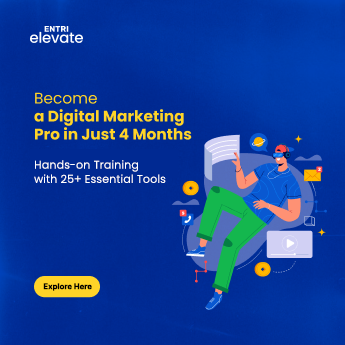Table of Contents
Key Takeaways
- Urban Company anchored its marketing on quality, trust and dignity of labour, transforming an unorganised sector into a premium service brand.
- The brand used a blend of digital‑first performance tactics, regionalised content and purpose‑driven storytelling to engage both consumers and service professionals.
- Urban Company’s campaign strategy aligned product, platform, and persona: vetted professionals + standardised pricing + seamless booking = credible promises.
- For marketers and students, this shows how to build campaigns that scale across geographies and segments in India by combining tech + brand purpose + localisation.
- If you’re keen to design marketing campaigns like this, the Entri App AI‑Powered Digital Marketing Course offers structured learning to apply these insights in practice.
Why Urban Company’s Campaign Story Matters
1: What is the primary goal of SEO (Search Engine Optimization)?
Founded in 2014 (originally as UrbanClap) and rebranded to Urban Company, the startup entered India’s vast, fragmented home‑services market with a bold mission: to make services like cleaning, plumbing, beauty, and wellness reliable, tech‑enabled, and trustworthy.
In India, the home‑services sector has been dominated by informal providers, a lack of standardisation, and trust issues. Urban Company solved for this gap, and marketing became critical to communicate that promise.
For everyday consumers, this campaign story matters because it reshaped expectations: convenience + quality + trust. For digital marketers and students, it offers lessons in bridging brand‑purpose, tech platform, and omni‑channel execution.
Join Our Online Digital Marketing Course & Learn the Fundamentals!
Become an AI-powered Digital Marketing Expert
Master AI-Driven Digital Marketing: Learn Core Skills and Tools to Lead the Industry!
Explore CourseHow Urban Company Built Its Marketing Campaign Architecture
1 Segmentation, Positioning & Promise
- Segmentation: Initially, urban tech‑savvy professionals (age ~25‑45) with disposable income seeking convenience; later expanding to tier‑2 cities and broader service categories.
- Positioning: A premium, tech‑enabled home‑services platform where professionals are trained, vetted, and pricing is standardised.
- Core Promise: “Get home services you can trust,” removing hassle, booking with ease, transparent pricing, and reliable professionals.
Lesson for marketers and students: Clearly define who you are speaking to (segment), what unique value you are offering (positioning), and how you’ll deliver it (promise). Urban Company aligned all three.
2 Purpose & Brand Storytelling
Urban Company went beyond functional messaging (“book a plumber”) to deeper narratives around dignity, respect and professionalism in the service economy. A notable campaign series is the “Dignity of Labour” series, where the brand highlights biases faced by blue‑collar professionals and elevates their status. For instance:
- A film challenging unconscious biases between white‑collar vs blue‑collar work.
- A campaign confronting stigma against female masseuses and highlighting “small‑minded thinking”.
This purpose‑driven storytelling helped Urban Company differentiate and build an emotional connection, not just transactions.
3 Multi‑Channel & Digital‑First Marketing Tactics
Urban Company’s campaign execution has core digital‑roots:
- Use of performance marketing (app install campaigns, conversion‑oriented ads) and social media to drive awareness and usage.
- Creation of large volumes of creatives and personalised visuals for different segments, requiring streamlined processes.
- Offline/online integration: while booking is digital, the service happens in the home thus the brand needed to assure trust offline too (training, certification, reviews).
For normal consumers: this means you see the brand consistently across app, social ads, and service delivery. For marketers/students: this shows campaign execution must cover both digital reach and offline delivery.
4 Localisation & Geographic Reach
Urban Company began in major metros but its growth strategy and campaigns factor in tier‑2/3 cities as well.
Localisation is visible in:
- Regional language messaging, tailored offers for different cities.
- Service categories aligned to local demand (appliance repair, cleaning, beauty) beyond just metro luxury.
- Marketing creatives and content relating to local consumer pain‑points (time, trust, convenience).
This geo‑manner of marketing is key in India’s diverse market.
Notable Campaigns & Execution Highlights
Here are some campaign highlights you should know:
- “Dignity of Labour” Series: Urban Company built a brand property around respect for service professionals helping differentiate and emotionally engage.
- Display of Quality & Trust: The “small‑minded thinking” campaign focusing on female spa professionals challenged stereotypes and elevated the brand’s trust‑messaging.
- Operational‑Marketing Link: A case‑study noted how Urban Company’s marketing team needed to produce hundreds of creatives for campaigns across services, cities, and segments showing how operational efficiency supports campaign scale.
Each campaign moves beyond simple product‑promo to layered storytelling + reassurance + scale.
Why These Campaigns Worked
1. Trust + Standardisation in an Unorganised Market
In a sector where service quality and provider credentials often vary wildly, Urban Company’s communication around vetting professionals, standard pricing and seamless tech booking created credibility. This gave their campaigns a strong foundation.
2. Emotional Engagement & Purpose
By bringing in the dignity of work narrative, Urban Company connected with deeper cultural values respect, empowerment, fairness. This emotional layer made the marketing memorable, beyond features and convenience.
3. Scalable Digital Execution
Their ability to produce many creatives, tailor campaigns, target segments and geographies helped sustain momentum while expanding.
4. Localised and Context‑Aware Marketing
In India’s varied markets, a one‑size‑fits‑all campaign often fails. Urban Company’s focus on region, language, relevant service categories made its campaigns resonate broadly.
Become an AI-powered Digital Marketing Expert
Master AI-Driven Digital Marketing: Learn Core Skills and Tools to Lead the Industry!
Explore CourseChallenges & Learnings for Marketers and Students
Every campaign has risks and lessons; Urban Company’s journey offers several:
- Scaling service quality with growth: campaign promises must be matched by delivery booking ease must be backed by actual trained professionals, else brand risk increases.
- Managing regional complexity: as the brand expands into tier‑2/3 cities, consumer expectations, service contexts, language & cultural nuances vary campaigns must adapt accordingly.
- Maintaining purpose authenticity: Purpose‑driven campaigns like “dignity of labour” need genuine internal alignment (training, partner support, policies). Otherwise, messaging may feel superficial.
- Balancing performance vs brand marketing: While digital performance campaigns drive installs/bookings, brand‑building campaigns (emotional/purpose) build long‑term equity. Marketers must balance both.
For students: Use Urban Company as a case to think not just “make ads” but “build a campaign ecosystem” from positioning, channels, creatives, region, operations.
Join Our Online Digital Marketing Course & Learn the Fundamentals!
How You Can Apply These Insights
For Digital‑Marketing Professionals
- Segment your target audience by geography, life‑stage, behaviour: what service needs do they have?
- Craft a brand promise that addresses a real pain point (Urban Company addressed convenience + trust) and align your campaign messaging accordingly.
- Develop both performance campaigns (bookings, conversions) and brand campaigns (purpose, storytelling) for long‑term value.
- Use localisation: create region‑specific offers, creatives, language versions; track metrics by city/region.
- Ensure operational readiness: your marketing promises must sync with delivery (service quality, user‑experience).
For Aspiring Students in Digital Marketing
- Use Urban Company as a case study: map out their STP (Segmentation, Targeting, Positioning), brand promise, campaigns, and channels.
- Simulate a mini‑campaign for a service brand: define the service, propose the brand promise, craft regional messaging, and pick digital channels.
- Upskill on digital marketing tools: performance advertising (Google/Meta), social content, video storytelling, localisation, analytics. Courses like the Entri App AI‑Powered Digital Marketing Course will help you structure these skills.
- Stay updated on evolving service‑economy marketing: home‑services, gig economy, localisation, and platform marketing are all increasingly relevant.
Why This Matters in India
- The home‑services market in India is projected to grow rapidly. Urban Company is a frontrunner in this shift. Their campaign strategy is relevant to many upcoming service brands.
- Digital adoption across tier‑2/3 cities is high; marketing that works across metros and non‑metros (with localisation) has greater reach. Urban Company’s expansion offers lessons.
- For marketers and students: Building skills around “service‑platform marketing”, “purpose branding”, and “hyper‑local execution” is increasingly valuable. Learning from brands like Urban Company gives an early advantage.
- The intersection of tech + service + trust is key: as consumers expect smooth booking, quality delivery, and reliability. Marketing must communicate this seamlessly.
How the Entri AI‑Powered Digital Marketing Course Ties In
If you’re inspired by Urban Company’s campaign story and want to build marketing capabilities that let you craft similar campaigns, here’s how the Entri App AI‑Powered Digital Marketing Course helps:
- You’ll learn how to analyse consumer behaviour and segment audiences (just as Urban Company did for home services).
- You’ll get modules on performance marketing, social media, content strategy, and regional marketing, key elements of Urban Company’s execution.
- You’ll explore brand‑purpose and storytelling frameworks how to craft messaging that resonates emotionally (e.g., dignity of labour).
- You’ll develop a hands‑on campaign simulation: choosing channels, creatives, localisation strategy, digital measurement.
- As a student or aspiring professional, this builds a portfolio of real campaign work rather than just theory helping you stand out in the job market.
Conclusion
The marketing campaign journey of Urban Company shows us that building a strong service brand in India isn’t just about functionality; it’s about trust, experience, storytelling, and regional relevance. Whether you’re an everyday consumer enjoying better services, a digital‑marketing professional building campaigns at scale, or an aspiring student entering the field, the lessons are rich and applicable.
And if you’re ready to take the next step from studying campaigns to creating them, why not explore the Entri App’s AI‑Powered Digital Marketing Course? With structured learning, a real‑world framework, and the latest tools, you’ll be equipped to craft campaigns that move audiences and build brands.
Also check out:
- Entri’s Resume Builder to craft industry-ready, ATS-optimised resumes tailored for digital marketing and AI-related roles.
- Prepare for interviews with Entri’s AI Interview Preparation App, which simulates real-world interview questions and gives instant, data-backed feedback to improve your confidence and communication skills.
Frequently Asked Questions
What is Urban Company’s marketing strategy?
Urban Company’s marketing strategy focuses on customer trust, quality assurance, influencer collaborations, and app-based convenience supported by strong digital branding.
How does Urban Company attract new users?
It attracts users through referral programmes, seasonal discounts, digital ads, and influencer partnerships, highlighting professional and verified services.
What makes Urban Company’s marketing campaigns successful?
Consistency in quality, emotional storytelling, and localisation in campaigns make Urban Company’s marketing stand out in the Indian market.
How does Urban Company use social media for marketing?
Urban Company uses Instagram, YouTube, and LinkedIn for content marketing, featuring customer success stories, tutorials, and promotional reels.
What are some popular Urban Company marketing campaigns?
Campaigns like “Partners Make It Possible” and “Trust the Professionals” focus on building reliability and brand humanisation through real stories.
How does Urban Company ensure customer retention?
By integrating loyalty offers, app-based rewards, quality checks, and personalised recommendations based on past bookings.
How does technology support Urban Company’s marketing?
AI-driven customer analytics, app personalisation, and data segmentation help optimise campaign targeting and user experience.
How does Urban Company localise its campaigns in India?
It adapts language, visuals, and offers for regional markets, addressing cultural nuances to make campaigns more relatable.















